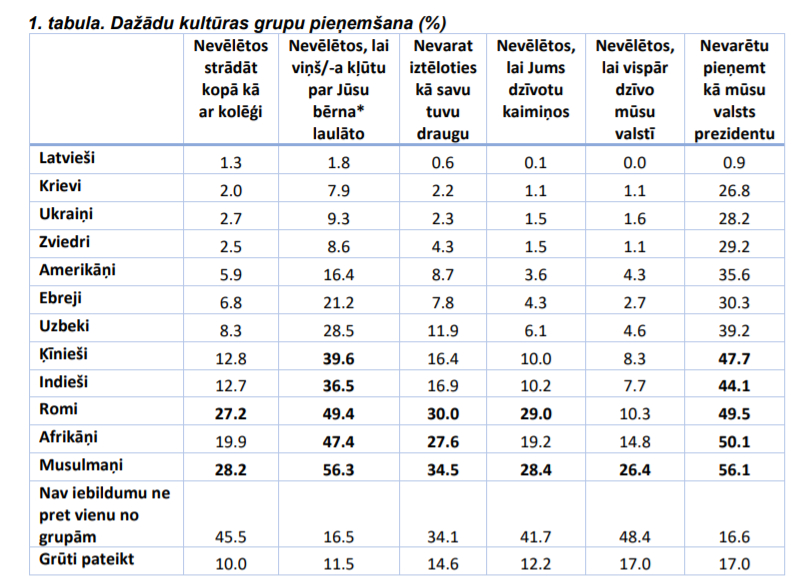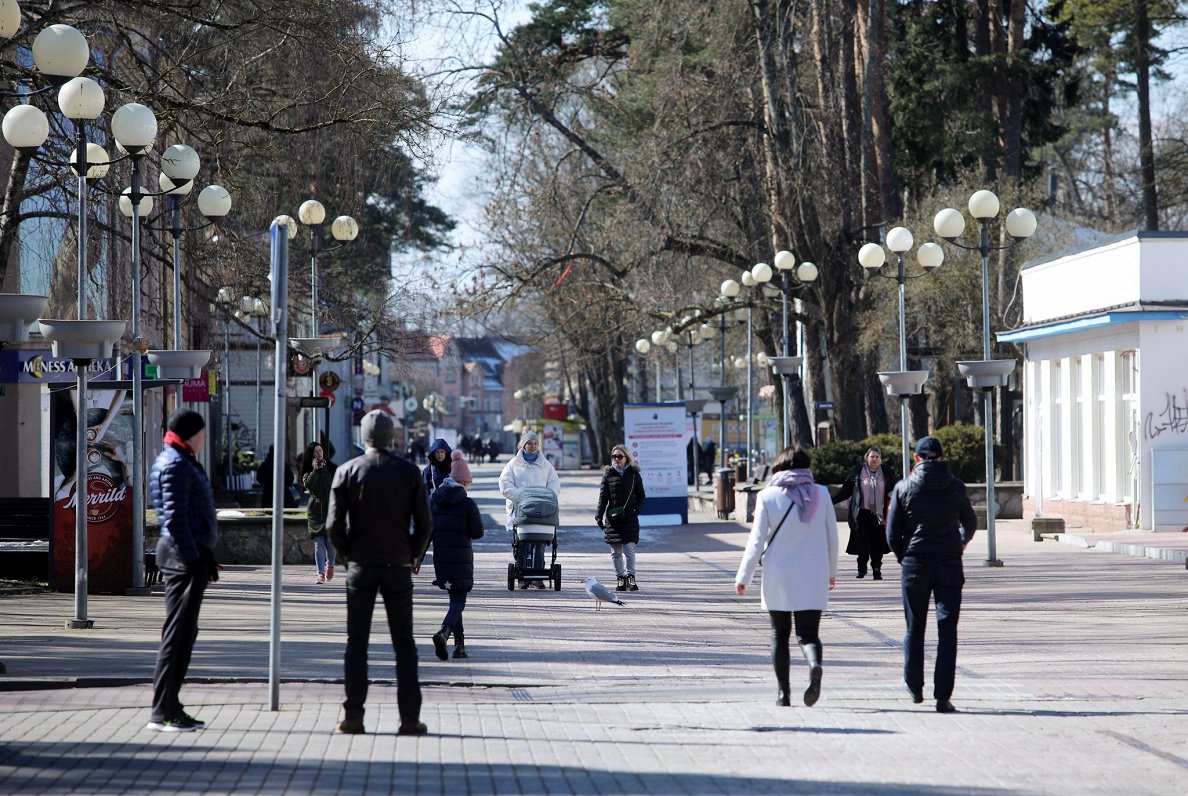The study, titled “Intercultural stereotypes and prejudices in Latvian society” asked 1,009 people to evaluate thirteen groups within society, defined by ethnic, geographic, racial or religious characteristics. The groups were Latvians, Russians, Ukrainians, the Swedish, Americans, Jewish people, Uzbeks, Chinese, Indians, Roma, Africans, and Muslims.
According to the study, 44% of the respondents thought a lot can be said about a person judging by nationality, 7% of whom thought one can tell a great deal, and 37% - quite a lot.
Most (56%) respondents said that all cultures are equal, 34% said some cultures are superior to others. According to the study, those who said some cultures are superior were more likely to think that a lot can be said about a person judging by nationality.
To obtain more specific data on intercultural relations, respondents were asked to evaluate the groups included in the research according to six criteria: whether they would accept representatives of these groups as colleagues, spouses of their children, neighbors, close friends, residents of the country or as the President of the country.
Respondents most often said they would not accept a different cultural group representative in their family or as the president of Latvia - only 16% would accept any nationality or cultural group in these positions. Respondents of nationalities other than Latvians were more accepting - 13% of Latvians would accept other cultural group members as the spouse of their child or President of Latvia, whereas in other nationalities this figure was 22%.

Though respondents evaluated Russians and Ukrainians rather positively, almost 30% were not accepting of a member of these groups becoming the President. About a half of respondents would not accept Chinese, Indian, Roma, African, or Muslim people as the President.
The survey shows that the Roma and Muslims are held in the most suspicion in all criteria. Many respondents (nearly 40-50%) would not accept Indians, Chinese people or Africans as potential family members.
Opinions about groups that have lived in Latvia for centuries are often based on personal experience or history, passed through generations and are not always false, said University of Latvia Philosophy and Sociology Institute lead researcher Mārtiņš Kaprāns.
He pointed out that the prejudice against Roma people is inherited from history. While Muslims of different nationalities and Uzbeks mostly represent one religion, the results of the study show that attitudes toward them are different. This is probably due to the fact that Uzbekistan was part of the Soviet Union and one of the so-called “fraternal republics”, which makes it easier for Latvians to understand them.
According to the study, 56% of those surveyed would not mind if the president of Latvia was a Latvian citizen of Indian origin. 44%, respectively, indicated that this would not be acceptable to them.
Kaprāns suggested that such a picture might have been created by the media, because everyday news about Indians is in a less negative context than, for example, about Muslims. Similarly, as a result of migration and globalization, people are increasingly confronted with different cultures in Latvia.
There are only a few percent of Latvians who describe their feelings towards people of Russian nationality as distant or very distant. “When we ask them to evaluate how close you think your culture is to the culture of the other people, we see that there is actually this sense of community. We've grown up on one film, we understand one joke. Those who represent foreign cultures, even though they may be Western cultures, sometimes seem less understandable than those who live next to us,” said the University of Latvia's Faculty of Social Sciences professor Inta Mieriņa.
However, as opinion groups, Latvians and Russians are very different, because there are differences in political and geopolitical thinking, while the emotional and interpersonal distance is very small or non-existent.





























